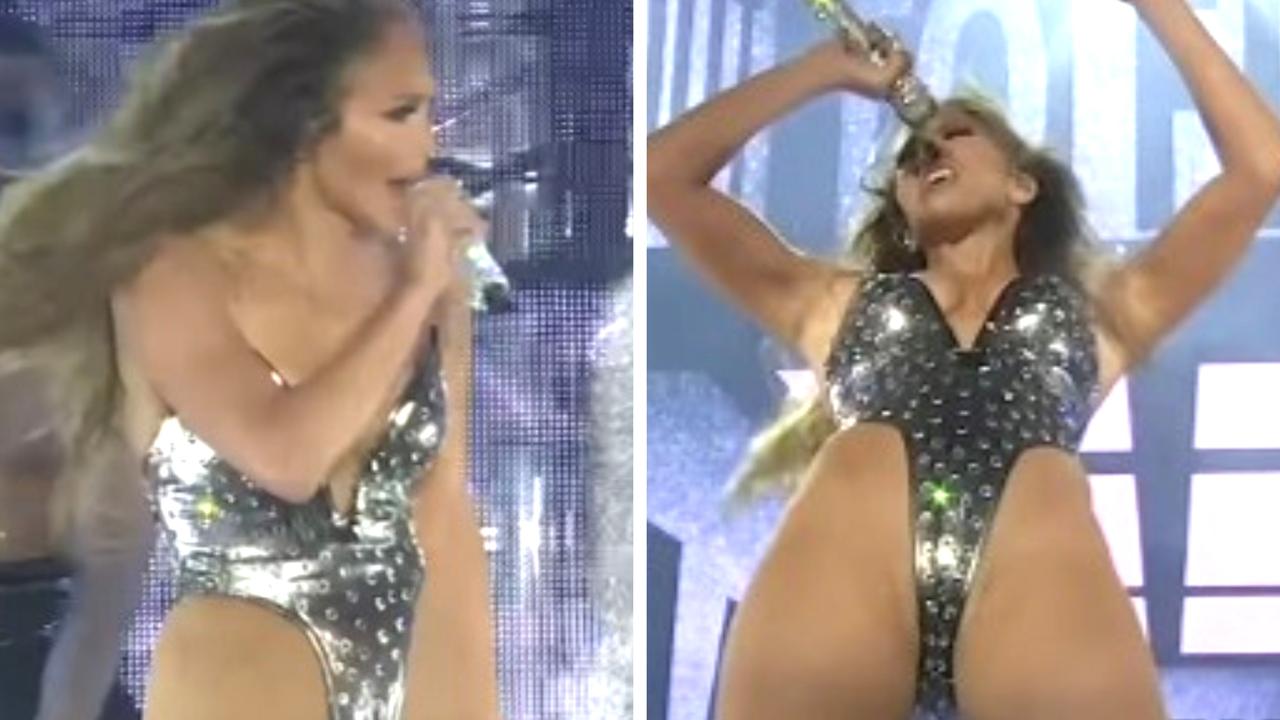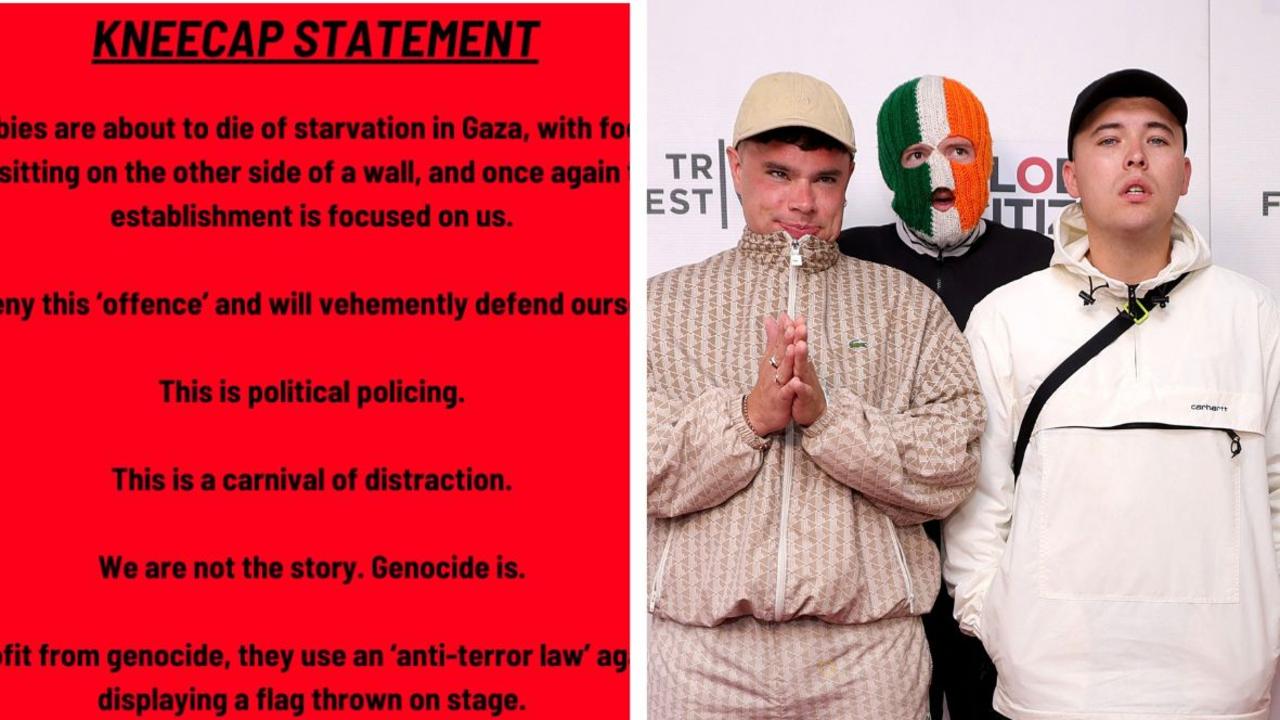‘On a knife edge’: Fears for music festival sector after Groovin The Moo’s abrupt cancellation
There are fears the glory days of Australian music festivals are over after the abrupt cancellation of yet another major event, adding to a long list of casualties.

The abrupt cancellation of a major music festival just two weeks after tickets went on sale has rung alarm bells in the industry, with fears more events could collapse.
Organisers of regional touring spectacular Groovin The Moo announced today they were pulling the pin because “ticket sales have not been sufficient to deliver a festival of this kind”.
The loss of such a marquee festival is alarming for the broader live music events community, Catherine Strong, a sociologist specialising in popular music studies at RMIT University, said.
“Groovin The Moo been a feature of the festival circuit for quite a few years now, so it’s a worry when events with big names that usually pull in lots of people start to go under,” Dr Strong said.
Do you have a story? Email tips@news.com.au
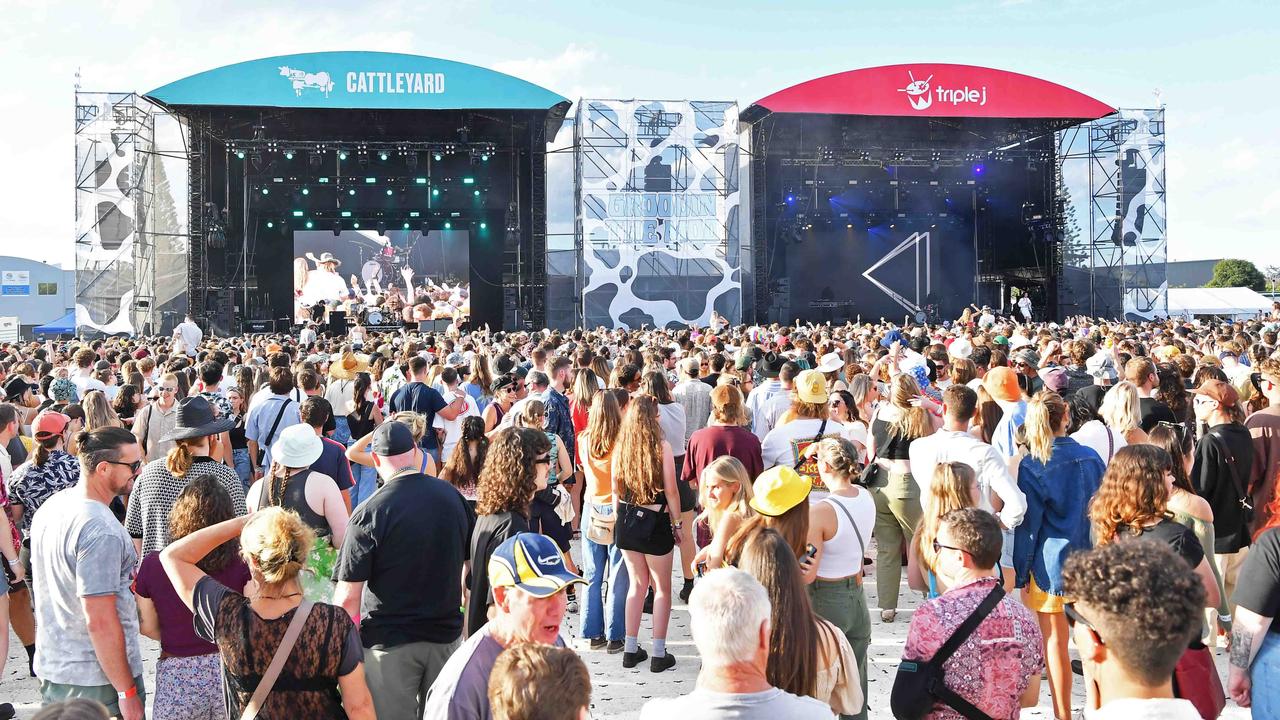
It’s the latest in a growing list of events to be canned or indefinitely postponed in recent times, joining Falls Festival, Dark Mofo, Coastal Jam, Goomfest and ValleyWays, to name a few.
A sharp drop-off in interest among punters who’d normally flock to such events is being blamed on the cost-of-living crisis, which Dr Strong said had hit the arts sector hard.
“If people are struggling to pay rent and struggling to buy food, they’re not going to be spending hundreds of dollars on a ticket to a festival or a concert, unfortunately,” she said.
“And of course, all of those things are impacting the people putting on the festivals as well – everybody from artists who are touring through to those pulling together all the infrastructure, and even vendors on the day selling food and drinks.
“The flow-on effect of all those extra costs means festivals are going to be on a much tighter budget. They’re going to be on much more of a knife edge than they would have in the past.”
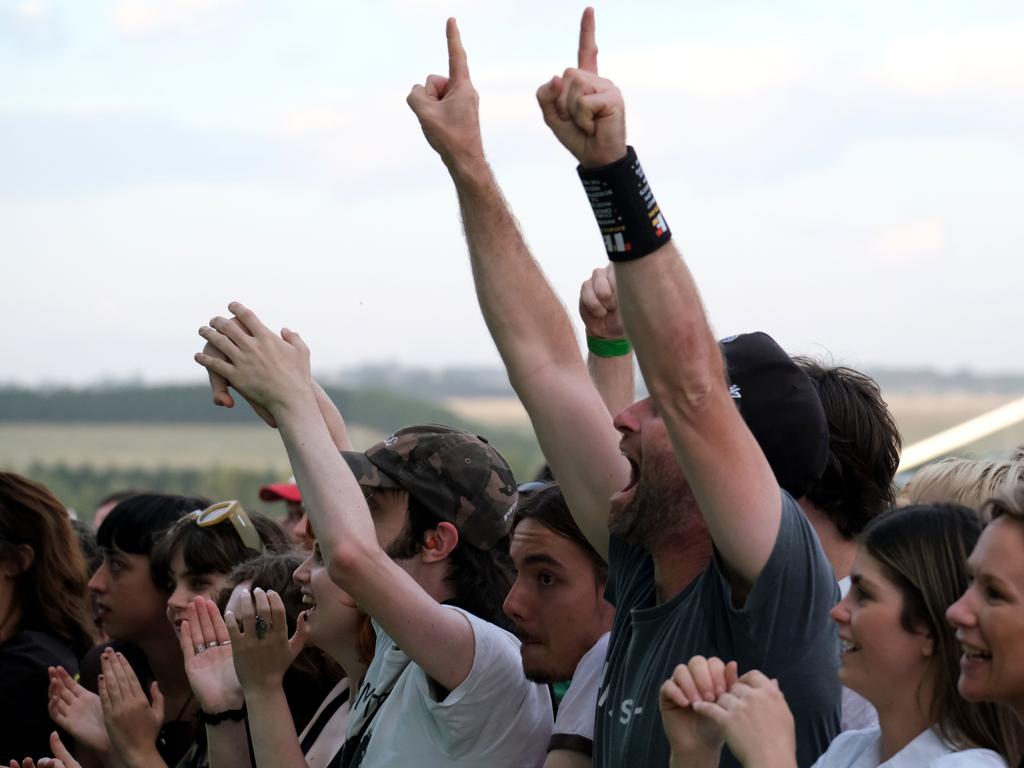
The rate of failure and little signs of hope on the horizon could see Australia get to a point where major festivals are a thing of the past.
The Covid hangover
Many operators are still recovering from the financial destruction of the COVID-19 years, where lockdowns, closed borders and tough public health restrictions decimated the sector.
One Australian festival organiser, who spoke on the condition of anonymity, told news.com.au that many operators were still running at huge losses because of the pandemic.
Just as they emerged from Covid, ready to begin the recovery, the cost-of-living crisis hit, alongside a rapid rise in expenses. They said virtually all aspects of running a festival now cost much more, from staging and equipment hire to insurance.
Fees for international artists are also higher, while the cost of actually flying them out have also gone up alongside airfares.
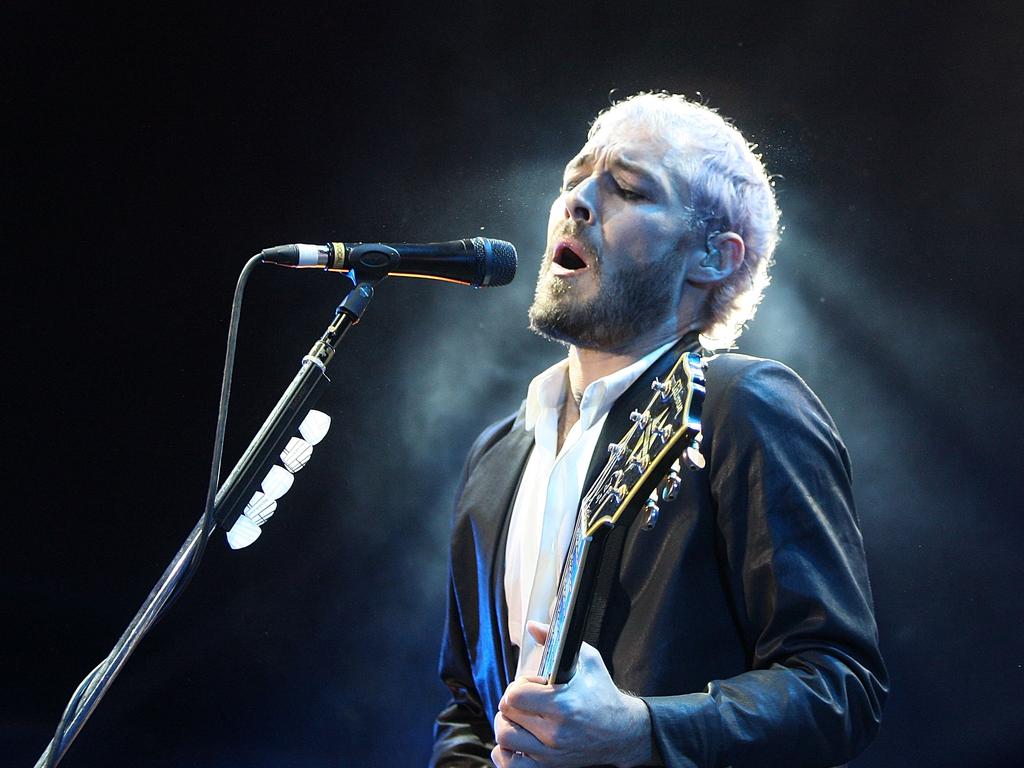
Greens Senator Sarah Hanson-Young, the party’s spokesperson for the arts, described the cancellation of Groovin The Moo as “another blow to Australia’s music industry”.
“The industry is struggling with the impacts of skyrocketing inflation and uncertain economic times,” Senator Hanson-Young said.
“Art matters. Live music matters. It’s time we left the arts industry in from the cold.”
She has written to Arts Minister Tony Burke calling on the Commonwealth to fund another round of live music grants in the upcoming budget, as well as a specific package of support for festival organisers at risk of collapse.
Dr Strong said many in the live music space missed out on financial support during Covid because they’re sole operators or contractors, making them ineligible for emergency payments.
“Those working in that space lost all of their income, but many also took a hit in terms of emotional resilience, going through a huge crisis and having to bounce back,” she said.
“It’s not surprising to have people be much more risk averse from having gone through that whole situation. The whole industry is in a bit of a fragile state. And what we’re talking about here is an industry that is always sort of running on fumes to some extent anyway.
“I think there’s a really big question at the moment about where the government should sit in regard to not just festivals, but across the board in terms of live music events.”
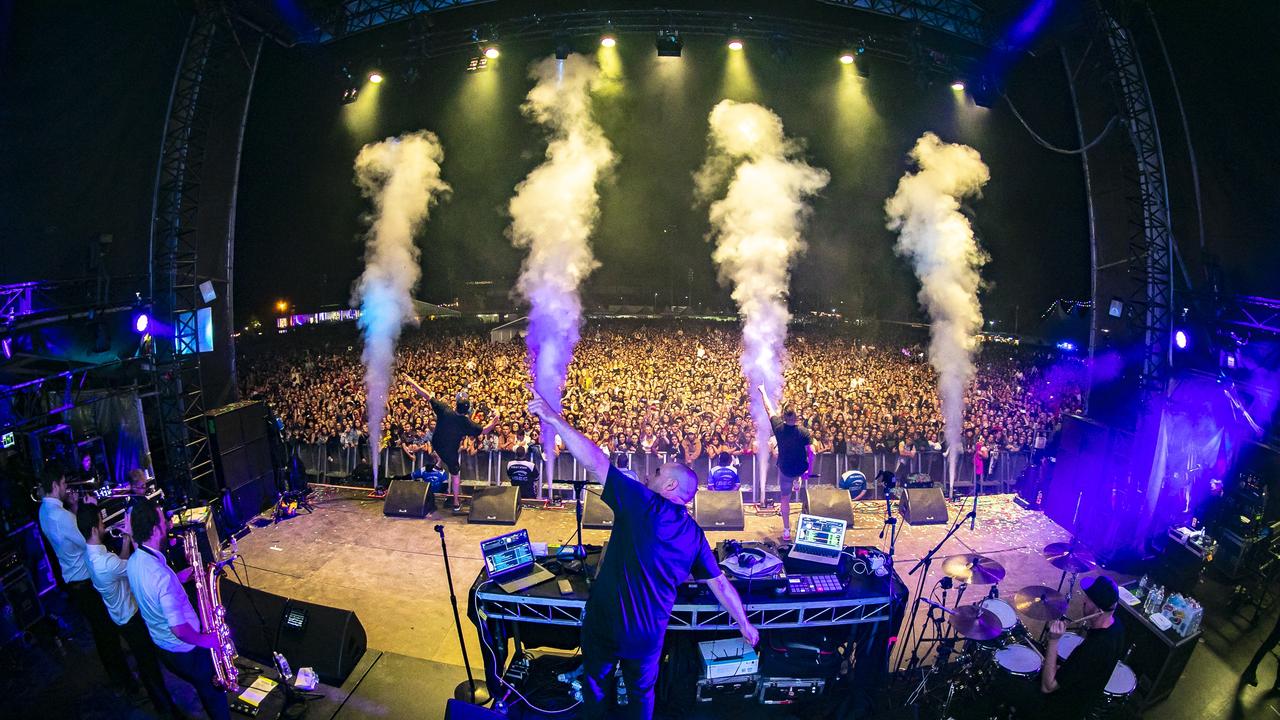
A spokesperson from the Department of Infrastructure, Transport, Regional Development, Communications and the Arts said the government is committed to supporting the sector.
“The Australian Government acknowledges that the live music industry has experienced a significant period of disruption, and continues to face challenges including changing audience behaviour, the rising costs of presenting and touring live music, and the loss of technical, production and allied skilled workers.”
Its Live Music Australia program aims to increase performance opportunities for original contemporary music produced by Australian artists through live music venues or music festivals, the spokesperson said.
Round seven of the scheme, which was announced on January 16, saw $2.5 million invested in music festivals, and the next round will focus on venue-based live music.
“The government is continuing to investigate ways to support the development, growth and innovation of Australian contemporary live music and live music venues into the future.”
Big risks, fewer rewards
Staging a music festival is always a risky business, even at the best of times, so current conditions would likely give many proponents cause to worry, Dr Strong said.
“You can never be a hundred per cent sure that it’s going to go well. It’s very expensive to stage a festival and you’re at the whim of the market. It’s a very risky endeavour.
“So, I think more and more of these organisers are looking at the cards on the table and saying, look, we’re better off at this point pulling the plug than trying to push through with something and ending up in a really bad situation at the end of it.”


The space is also incredibly competitive, with a jam-packed calendar full of events vying for the attention of punters.
“From what we’re seeing, it does seem like at this current moment, in this current economic climate, there were too many festivals,” Dr Strong said.
Last month, organisers of independent music festival ValleyWays pulled the pin several weeks out from the event, citing economic pressures.
“We understand that costs of living pressures and rising interest rates have severely impacted patrons, particularly in regional areas,” a statement read. “It simply isn’t the right time for this ambitious music festival to take place.”
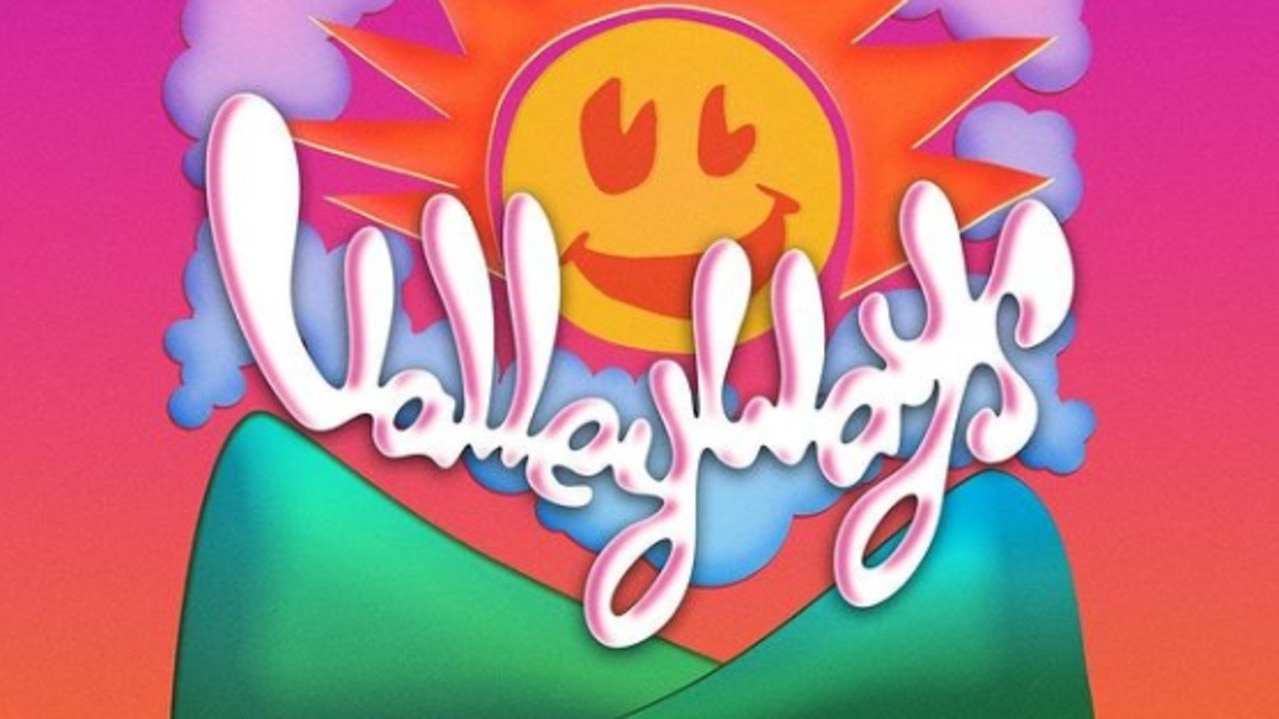
Vintage Vibes in Adelaide was also cancelled, with spiralling costs blamed for the decision.
“Increased pressure on supply chains, especially to venues outside the CBD, alongside shifts in economic climates reflect the broader challenges many are facing within the industry,” organisers said.
Just a week before it was due to kick off, Coastal Jam on the Mornington Peninsula in Victoria was also axed. Event organiser Adam Metwally said boutique festivals like his were falling victim to budgetary pressures.
“Everyone that I know has been feeling the sting of the cost-of-living crisis and one of the consequences of this has been the much slower than usual and very much last-minute sales for boutique events like Coastal Jam,” he said.
“They only have enough money for a few things now, naturally leading to the major festivals, massive international tours being the priority which I fully understand. Unfortunately, it’s led to smaller boutique festivals and events such as ours to fall by the wayside.”
Reconfigure and recover
Since the birth of music festivals in Australia in the 1970s, the sector has been through many iterations as trends and tastes evolve.
“Back at the start, when the scene was burgeoning, there was an exploratory phase of organisers working out what a festival even looked like and how they might work in Australia and what the regulations were,” Dr Strong said.
“After five or so years of lots of events, it died down again until the 1980s and into the 1990s when we had those really big festivals that everybody focused on, like the Big Day Out, Livid, and Homebake.
“Then eventually, we saw a splintering where there emerged a lot more niche festivals emerged, designed for a specific audience and smaller crowds.”
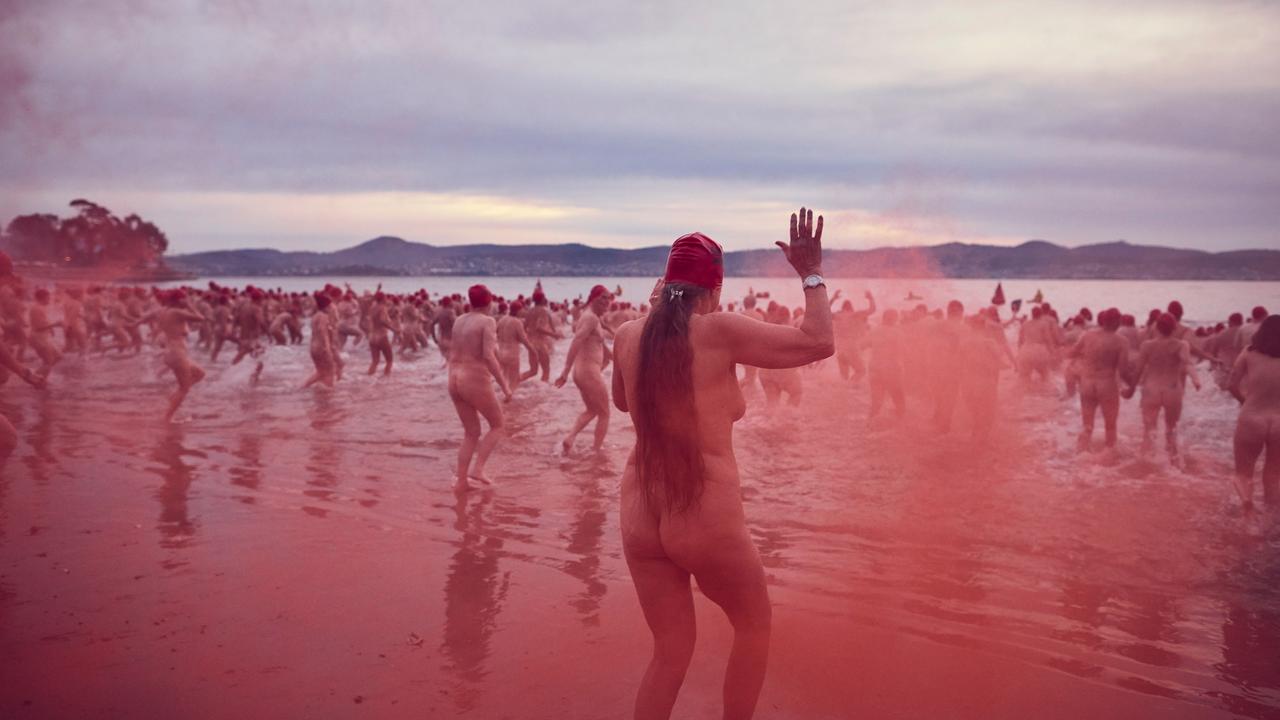
At various points, those in the festival space have had to work out what the situation point is and how to adapt to shifting circumstances, she said.
That’s likely to happen again this time around, but it might take a while for the sector to fully recover.
“We are going to have to see a change in the economy before we see a huge festival scene again. But festivals aren’t going to disappear, that’s for sure. People love festivals.
“It just might look a bit different in the future.”



